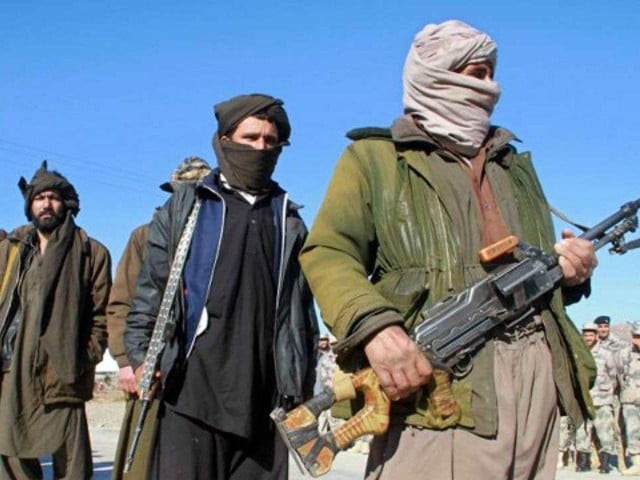Pakistan still ‘pushing’ Afghan Taliban for peace despite waning influence
Insurgents are still committed to peace efforts due to Islamabad’s influence, says official

Pakistan is still pushing the Afghan Taliban for a political settlement behind the scenes despite Prime Minister Imran Khan’s recent statement that Islamabad’s influence over the insurgent group has diminished after the US announced a withdrawal date.
It was because of Pakistan’s “leverage and efforts” that the Afghan Taliban this week revealed that they have been working on a written peace proposal to be shared with the Afghan government in the coming months.
“They have made this commitment privately many months ago but now they have said it publicly. This is significant,” said a Pakistani official involved in the Afghan peace efforts.
The official, who requested not to be identified so that he could speak freely, told The Express Tribune that it was because of Pakistan’s efforts that the Taliban were still committed to peace efforts despite rapid gains they have made since the US and NATO forces started withdrawing from Afghanistan.
The official replied in the affirmative when asked whether it was Pakistan’s efforts that the Afghan Taliban publicly announced to share the written peace plan.
Pakistan is not only in touch with the Afghan Taliban but also reaching out to other players in Afghanistan. The Pakistani ambassador to Kabul has been meeting leaders from different political parties both in government and otherwise. The idea behind those contacts is to push for a political settlement, the official added.
As the Taliban captured districts after districts with little resistance from the Afghan security forces, the representatives of the insurgent group and the Afghan government held talks in Doha.
Those talks coupled with the Afghan Taliban’s announcement for presenting a written peace plan in the coming months have rekindled some hope for a peace deal.
“We have been telling the Taliban that you may take over Kabul by force but to seek legitimacy and international recognition the only way to come to power is through peace deal and talks,” the official said.
However, the official was sceptical about the success of those efforts because the situation was both “volatile and unpredictable”.
Pakistani officials said although Taliban gains were quite rapid in recent weeks, the situation could change if the Afghan security forces show some resistance.
“Therefore, it is too early to predict where things are heading in Afghanistan. The situation at best is volatile and unpredictable,” the official said when asked about the chances of Afghanistan slipping into another phase of chaos.
At a recent briefing given to a select group of parliamentarians, the military authorities in Pakistan painted grim prospects of any peace in Afghanistan. The members of parliament were told that Afghanistan was fast descending into civil war, something that did not bode well for Pakistan.
The negative fallout of unrest in Afghanistan includes rise in terrorism and fresh influx of Afghan refugees.
Pakistan expects half a million fresh Afghan refugees in case of a civil war in Afghanistan. This time authorities insist refugees would be kept at special camps in the bordering areas instead of letting them in the settled parts of Pakistan.
Pakistan is already home to three million registered and unregistered Afghan refugees. Islamabad, however, seeks their dignified and early return.
National Security Adviser Dr. Moeed Yusuf at a recent news conference made a fresh appeal to the international community for the early return of the refugees after an Afghan origin man was found involved in a recent terrorist attack in Lahore.
But with the situation fast deteriorating in Afghanistan, observers fear that Pakistan’s desire to see the early return of these refugees may never become a reality in the near future.



















COMMENTS
Comments are moderated and generally will be posted if they are on-topic and not abusive.
For more information, please see our Comments FAQ